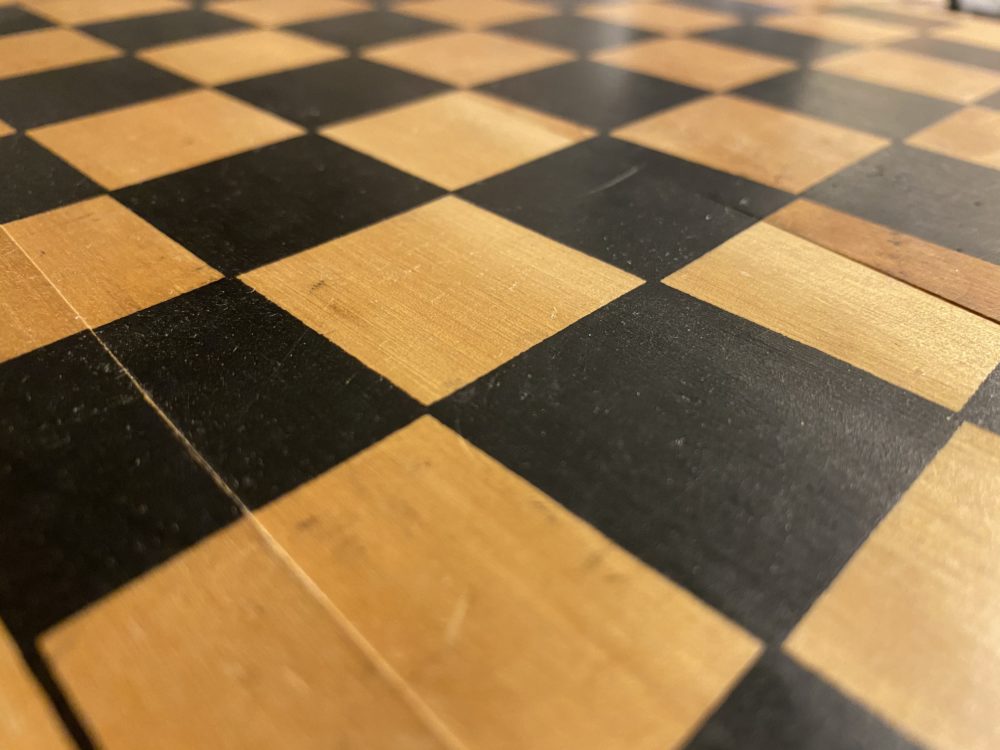
By Kevin Doan
The attack is imminent. First, your Pawns fall, then your noble Knights. You have played into the enemy’s hand, they’ve taken your beloved wife, the Queen. With nothing left, you make a direct charge for the enemy king. In their siege, the enemy has been blindsided and they have put their troops forward but have only left themselves behind with few pawns to defend themself. Your futile charge turns out not to be futile at all. It has worked and though you have lost many battles, the war is won.
That may have sounded like an excerpt taken right out of a mystical fairytale with the hero, beaten down, taking a sharp left corner and securing the victory. That wasn’t a fairytale, instead, it was the game of chess, played by millions but mastered by none. It is a combination of tactic and forethought, planning and luck, trial and error. Now that might already sound like a headache but let’s break it down.
The board is 8×8 with a line of Queens, Kings, Bishops, Knights and Rooks on either edge of the board and Pawns in front of them. Now, many people may find the silence of this game unbearable, but if we look at the board as a map with the center squares being the top of a hill and every other square being the descending sides of the hill we can see that an actual battle that exists on that very board. One that isn’t quiet but bloody and violent. If we have learned anything from middle school history class it is that the Battle of Bunker Hill was almost won because the ragtag Americans at the top of the hill had a severe advantage over the superior British army at the bottom of the hill. The same concept applies to this situation. As a master tactician, it is in your best interest to put your best troops at the top of the hill.
The next thing to imagine while on the board is to see the line of pawns as a line of soldiers. They are dangerous and if used correctly, can decide the course of a battle. The Pawns can be used to secure points or areas of interest. Imagine Marines trying to secure a beachfront, they are simply there to capture a disputed region that would be used as a landing zone for an army. It is the same concept. If there is a highly contested area, your pawns should go there.
Now imagine that group of Marines trying to storm a beach alone, it would be futile if there was no backup. The enemy could just simply recapture the area after consolidating their forces. That’s why you will need back up, sending in your more powerful troops to follow the Pawns will strengthen your hold on the region. At this point, you have captured the location, this could be the top of the hill or another highly contested area but that doesn’t mean that it is easy sailing from here. You must heed the enemy’s snipers which in this case are Bishops. They have the ability to take out your high valued pieces like your Queen or Knights, but also they have the ability to take away the contested area that you have just claimed.
Being in a battle zone means putting yourself in the line of fire, at this point it is back and forth tugging. You take their Bishop and they takes yours. It is time to employ your handy Knights which have the ability to move over other pieces. Their speed comes handy here. If there is a location that your forces can’t reach it is vital that a Knight is used. Their L-Shaped movement makes for swift surprise attacks or can be used as a hand to help secure different parts of the board. It is vital that your Knights be placed further uphill for maximum effectiveness.
Now that it is later in the game, your Queen, the most powerful piece in your possession should be deployed. She is versatile, being both Bishop and Rook in one. With such power comes one caveat, you start with only one Queen which puts her in the riskiest of positions. Losing a member of your army wouldn’t guarantee defeat but losing your Queen would most likely doom your efforts.
All your troops have been deployed, there is a war raging right before your eyes but where are you in all of this? You are the King of course! The most prized piece on the board, it is the incarnation of yourself in the game and thus must be treated with the utmost respect. Leaving yourself vulnerable would leave you unable to command your troops and so for this reason, it is critical you leave your king far from any contested zones like the hill or the enemy territory.
As the ruling monarch of a massive army, you have been tasked with fighting off an enemy. There is no retreat. It is a choice of kill or be killed. Through your knowledge of the landscape, you have placed your most powerful soldiers atop a hill preventing an enemy incursion or your lands. Though hesitant at first, you have decided to send your spouse into the fray. Through masterful stratagem, you outwit the opponent. Your troops at the top of the hill slam into the enemy. The attack is overwhelming, the enemy King is left alone now disheveled and surrounded by great army not of his but of your own. You’ve fought and won and now live to defend your people if such terror is brought upon them.





